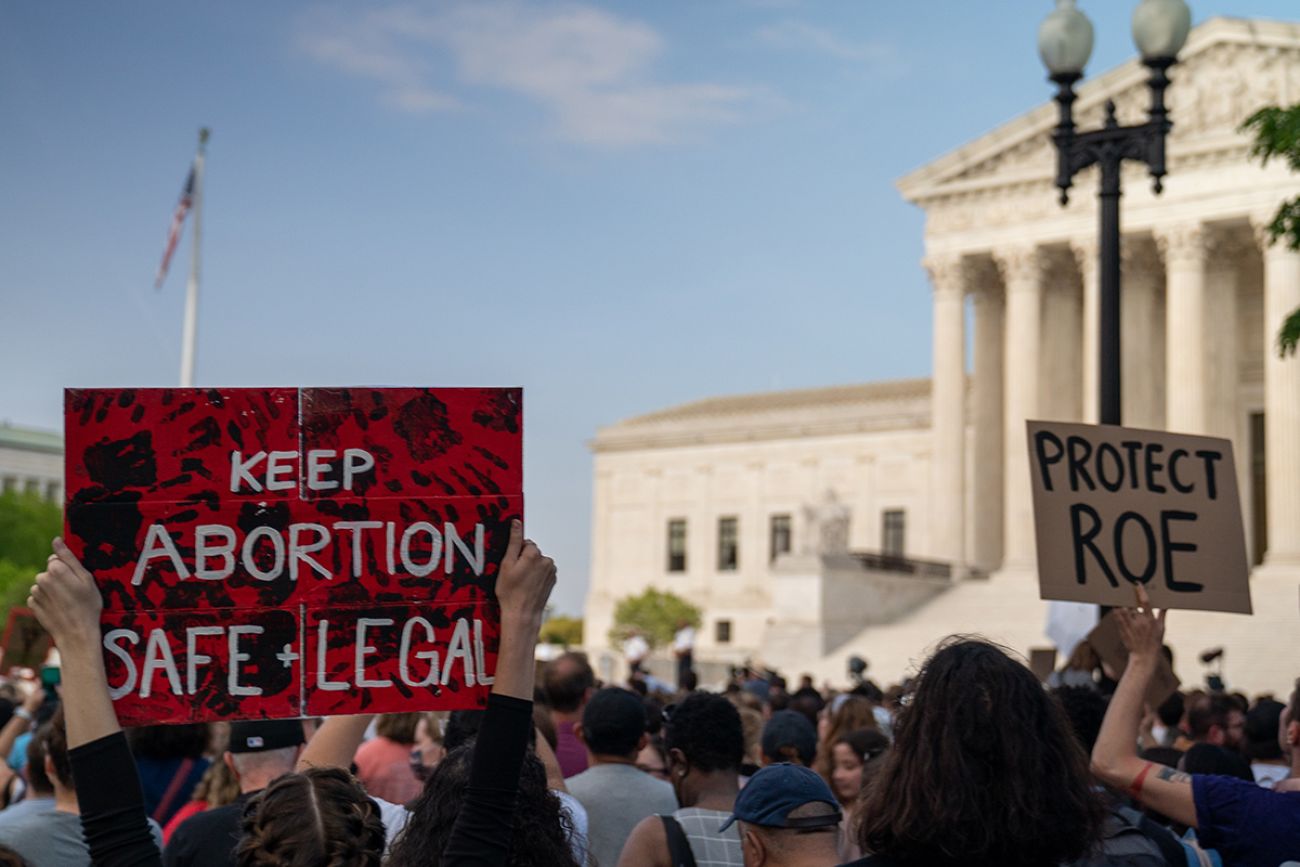U.S. Supreme Court to weigh limits on pill used in most Michigan abortions

- The abortion drug, mifepristone, was FDA-approved in 2000. It’s part of a two-drug regimen to end a pregnancy
- The U.S. Supreme Court said Wednesday it will decide whether to restrict access to the drug, which can now be ordered by mail
- More than half of abortions in Michigan and nationally involve the abortion pill
The U.S. Supreme Court has agreed to decide whether to limit access to the abortion drug mifepristone, which is relied upon by patients in more than half the abortions performed nationally.
The decision puts abortion before the nation’s highest court for the first time since June, 2022, when in Dobbs v. Jackson Women’s Health Organization the justices struck down nearly a half-century of federally guaranteed abortion rights under the landmark Roe v. Wade decision.
The nine justices will likely hand down a decision in the abortion pill case in late spring or early summer, in the heat of presidential and congressional campaigns in which abortion access will almost certainly play a critical role.
Here’s what to know about what’s at stake:
What will the justices decide?
At issue are cases in which easy patient access to mifepristone was challenged by conservative groups. Mifepristone is the first in a two-drug regimen used to medically end a pregnancy. (The second medication in the regimen is misoprostol.)
In recent years, the U.S. Food and Drug Administration has made it easier to obtain the abortion pills — allowing patients to purchase them online, for instance, and without doctor visits. It also extended the gestational age that the pills could be used for abortions — from seven to 10 weeks — while allowing medical professionals other than doctors to prescribe it.
Related:
- July 11, 2023: Michigan abortions for out-of-state patients jumped 66 percent last year
- April 23, 2023: Abortion access expands with online prescriptions in Michigan. Some fear risks
- Nov. 21, 2022: A Texas lawsuit could stifle Michigan access to the abortion pill
- Nov. 9, 2022: Abortion locked into Michigan constitution. What comes next.
The Biden administration and the mifepristone’s drug maker are asking the justices to strike down restrictions imposed on mifepristone access by a federal appellate court earlier this year, following a flurry of lower court rulings. In April, a majority of the justices issued an order allowing broad access to the medication to remain in place until the cases played out in the courts. (Justices Clarence Thomas and Samuel A. Alito Jr. dissented from that order.)
Last spring, in a lawsuit brought by conservative groups in federal court in Amarillo, Texas, U.S. District Court Judge Matthew Kacsmaryk suspended FDA approval of mifepristone, along with federal changes that made it easier for patients to obtain the medication.
The U.S. Court of Appeals for the 5th Circuit upheld Kacsmaryk’s rollback of access to the medication, but ruled the challengers’ efforts to invalidate the FDA’s initial approval of the drug came too late.
How often is this drug used?
So-called medical abortions became a more popular choice for patients after the high court struck down Roe, which resulted in a number of states making abortions illegal or severely restricting them. It was easy to see why. Abortion pills can be delivered through the mail and taken at home, without having to visit a doctor’s office or hospital. Even in places like Michigan, where abortion access laws have been strengthened this year, pills are used in roughly half of all abortions.
Medical abortions — often induced in a person’s home — make up just over half of all abortions performed in the U.S., as well as in Michigan.
What’s the argument?
Mifepristone was approved by the Food and Drug Administration in 2000, and is sold under the brand name Mifeprex. The FDA approved a generic version (mifepristone) in 2019.
Critics of the court-ordered restrictions on mifepristone argue that a large body of research has shown the medication to be safe and effective. A dozen leading physicians groups, including the American College of Obstetricians and Gynecologists, filed a brief in a related case saying any rollback of the drug’s approval “would be a grievous mistake” and “wrong and bad medicine.” (Medical abortions are safe up to 12 weeks of pregnancy, according to the World Health Organization.)
But groups challenging the pill contend that Americans have been misled about its safety. In a statement Wednesday to Fox News Digital, Katie Daniel, state policy director for Susan B. Anthony Pro-Life America, accused the FDA of “working hand-in -glove with the abortion lobby,” Fox reported.
It’s an argument also made by abortion opponents in Michigan. Genevieve Marnon, legislative director of Right to Life Michigan, told Bridge Michigan the pill was approved over safety concerns and amid “shenanigans.”
Could this case impact abortion in MIchigan?
Michigan voters approved Proposal 3 in 2022, enshrining abortion rights in the state Constitution. Gov. Gretchen Whitmer’s signed the Reproductive Health Act last month, removed some longstanding restrictions on abortion access.
Even so, new federal restrictions on mifepristone prescriptions and distribution would apply to all states, including Michigan.
That, said Marnon, would be a win for patient safety. She said anyone seeking an abortion should be required to see a doctor to determine a precise gestational age and rule out complications such as ectopic pregnancies, which occur in 2 percent of all pregnancies.

“Mail-order abortion pills,” she said, “could fall into the wrong hands, for example, and can be used improperly. I would love to see the Supreme Court put back those safety provisions.”
But Renee Chelian, founder of the Northland Family Planning Centers in southeast Michigan, which performs abortions, said restrictions will “impede a physician’s ability to take the best care of their patient.”
She and other abortion providers said an adverse ruling would mean they will have to perform abortions only by surgery or through a medication abortion regimen that includes only misoprostol, which requires three doses of four pills each. A misoprostol-only procedure is used elsewhere around the globe, but it is less effective than the two-drug regimen and can cause more side effects, such as cramping and bleeding.
“A medical abortion can be done with (misoprostol) only but it is certainly not the best option,” she said.

A spokesperson for Planned Parenthood Advocates of Michigan echoed Chelian’s sentiments.
“If the Supreme Court limits access to mifepristone, they will be forcing patients to access less-effective care and will set a precedent allowing political interference in the FDA’s approval process,” Ashlea Phenicie, the group’s chief advocacy officer, told Bridge in an email.
Is this the only abortion legal fight now?
Far from it.
Earlier this week, a Texas woman suffered a legal setback in which she sought permission to end her pregnancy in the state after her doctors argued that medical complications threatened her life and future fertility. The woman decided to obtain an abortion outside of Texas.
In Kentucky, a woman is fighting that state’s near abortion ban, arguing that her fetus is no longer viable.
Meanwhile, the Arizona Supreme Court is considering a Civil War-era law that makes almost all abortions in the state illegal.
See what new members are saying about why they donated to Bridge Michigan:
- “In order for this information to be accurate and unbiased it must be underwritten by its readers, not by special interests.” - Larry S.
- “Not many other media sources report on the topics Bridge does.” - Susan B.
- “Your journalism is outstanding and rare these days.” - Mark S.
If you want to ensure the future of nonpartisan, nonprofit Michigan journalism, please become a member today. You, too, will be asked why you donated and maybe we'll feature your quote next time!







